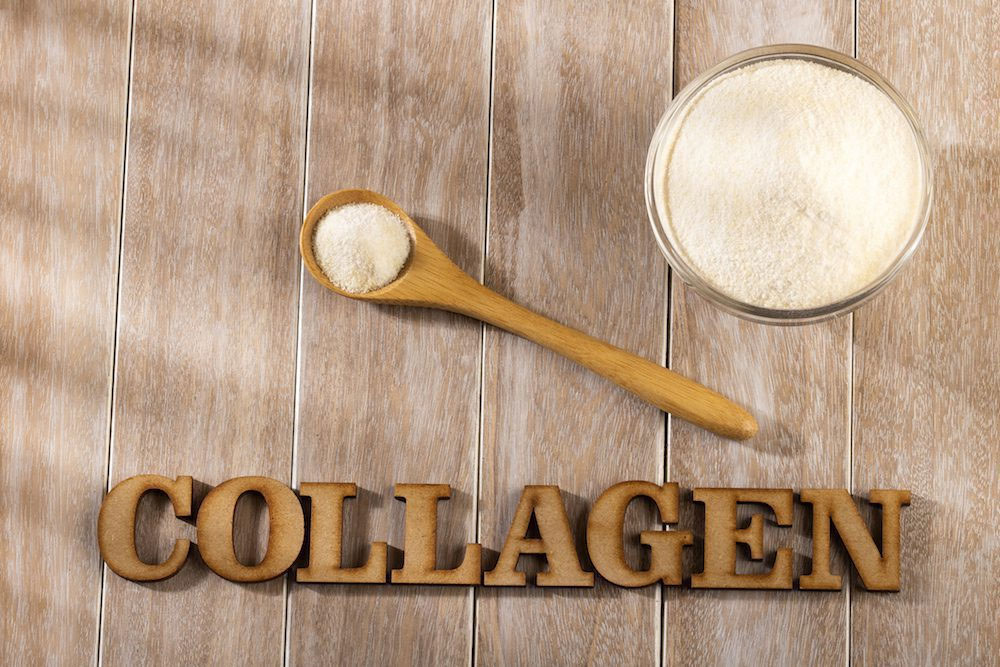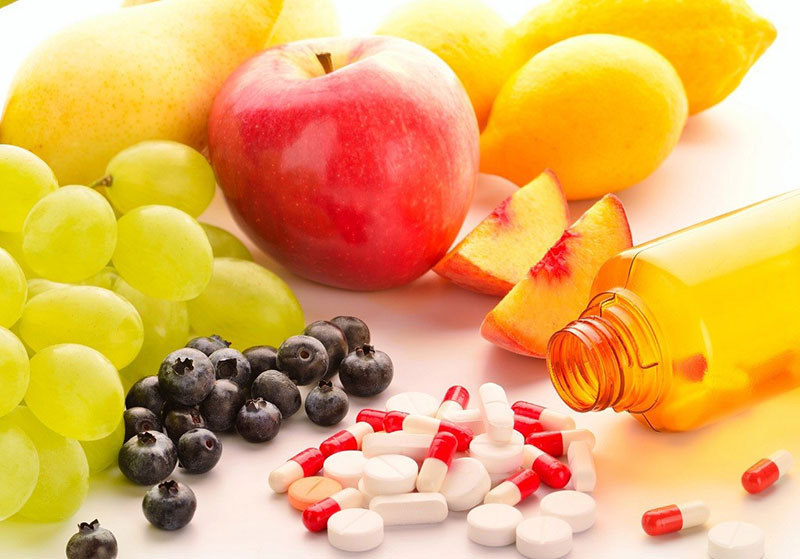Improving your body composition has many health benefits and is also a common goal for those looking to change their appearance. Some people change their body composition dramatically to compete in physique and bodybuilding shows, while others simply want to make lasting changes to their body fat and muscle mass.
Making lasting, long-term changes to your body composition starts with a healthy diet and exercise routine that supports your overall health and fitness. Learn more about body composition and how you can improve it below.
What is Body Composition?
Body composition describes the percentage of fat, bone, muscle, water, and other tissues in your body. The percentage of fat to muscle that people most often look at when looking to understand or improve their body composition is most often the percentage of fat they have compared to muscle.
Lean body mass is your total body mass minus your fat mass, also known as lean mass. It is often mistakenly believed that lean body mass refers only to muscle mass, but it actually refers to all the tissues in your body that are not fat mass (adipose tissue). This includes muscles, bones, organs, nerves, hair, nails, ligaments, tendons, etc.
Keeping your body fat levels in a healthy range reduces your risk of all-cause mortality. Low levels of lean body mass, such as muscle and bone, also increase your risk of all-cause mortality.1 Excess body fat can increase your risk of developing heart disease, metabolic syndrome, high blood pressure, or type 2 diabetes.
How to improve your body composition?
Improving your current body composition requires changing your diet and exercise habits. In addition, other factors such as sleep, hormones, and stress levels can also play a role.
Diet and Body Composition
The foods you eat can affect your body composition, including the amount of muscle, water, bone, and fat in your body. Body weight is synonymous with weight, so theoretically “improving” your body composition is very subjective. If you want to “improve your body composition” – whatever that means to you – you may be looking to increase muscle mass, decrease fat mass, lose weight, or gain weight.
In very simple terms, weight is determined by how many calories you consume, more or less, than you burn. Eating more calories will lead to weight gain, eating fewer calories will lead to weight loss, and eating the same amount of calories as you burn will maintain your weight. However, whether you gain or lose weight from fat or lean mass depends largely on your eating habits.
There are many ways that diet can affect body composition, but often when people adjust their diet plans, they don’t always see results. Hormones, genetics, health conditions, and many other factors all play a role, so diet and exercise are just two of many factors to consider.
If weight loss is your goal, research shows that protein intake is the most significant factor in determining where weight loss occurs. Eating high-protein foods while losing weight will help preserve muscle tissue, improving body composition by helping to reduce fat while maintaining lean mass.
Studies vary, but consuming 25-30% of calories from protein may support weight loss better than low-protein diets. If you are active, which you probably will be if you are looking to make changes in body composition, then you will need more protein to maintain activity and recovery. According to the Academy of Nutrition and Dietetics, Dietitians of Canada, and the American College of Sports Medicine, you should aim for 1.2 to 2.0 grams of protein per kilogram of body weight per day, depending on your fitness level.
If your goal is to gain muscle mass, you will likely need to increase your overall calorie intake as well as your protein intake. Adjusting your diet to support muscle gains means eating more calories than you burn and ensuring you have enough protein and carbohydrates to support your workouts, muscle repair, and growth, as well as enough healthy fats for optimal hormonal function and health.
If your goal is to gain weight, you will also need to increase your calorie intake. You can use the same method as you would for building muscle mass, focusing on nutrient-dense sources of carbohydrates, fats, and proteins to meet and usually exceed your needs.
Exercise and Body Composition
Exercise allows you to make the most noticeable changes in body composition by increasing muscle mass. Exercise in general has been shown to increase lean body mass in normal-weight individuals and decrease fat mass in overweight and obese adults. Decreasing fat mass and increasing or maintaining lean mass will improve body composition.
Research shows that adults with excess body fat benefit particularly from resistance exercise. Research shows that resistance exercise affects the percentage of lean mass to fat mass, while aerobic exercise only affects fat mass.
If you are looking to change your body composition, don’t skip exercise. Losing weight through diet alone will result in a loss of lean mass, including muscle, which will further cause adverse metabolic adaptations and will not result in the desired change in body composition.
Other Factors
Sleep, stress, and hormonal factors also affect body composition. For example, lack of sleep can affect hormones, including those that control hunger and food cravings. This can prevent your body from getting the nutrients it craves.
In addition, without adequate sleep, you’re likely to move less and perform less well during workouts. Your recovery from workouts will also be impaired, which can hinder your ability to gain muscle and lose fat.
Growth hormone is released during sleep and affects muscle growth and fat loss. If you’re not getting enough sleep, your growth hormone levels may not be optimal.
Some people experience hormonal shifts that make it difficult to lose fat or gain muscle. Hormonal imbalances like PCOS or the decline in testosterone and estrogen that come with age and menopause can significantly impact your results.
Similarly, stress can impact your food choices, sleep, hormones, and more, making it difficult to lose fat or gain muscle. Cortisol, which is a stress hormone, is considered catabolic (muscle wasting) and makes it difficult to achieve anabolism (muscle growth) if its levels are too high for a long time.
Incorporating stress-reducing and sleep-improving practices into your lifestyle will help you counteract these effects. Some people need a significant break from calorie deficits and intense exercise to help their body relax and de-stress.1415 For serious stress and hormone issues, it’s best to see a professional.
Exercises That Can Affect Body Composition
Cardio Exercises to Improve Body Composition
When it comes to cardio, you can choose any form that you like. Studies have shown no difference in weight loss, fat loss, or visceral mass between aerobic and high-intensity interval training, provided the energy expenditure is the same. This means that for the same calorie burn, you’ll get the same results whether you’re doing HIIT or steady state cardio, so it’s best to choose what you enjoy and can be consistent with.
Strength Training for Better Body Composition
If you’re eating right to support muscle growth, then doing resistance training will help you build more lean mass. If you’re new to resistance training, you may even notice an increase in muscle mass while staying on track or even in a calorie deficit.
Strength training also helps prevent the loss of lean mass, including muscle tissue, when in a calorie deficit. Resistance training types range from bodyweight movements to heavy weight lifting. If your goal is to increase muscle size, follow hypertrophy-based strength training best practices: use progressive overload, consistently increase volume over time, and manage fatigue with deload phases. It’s also important to track your progress so you know when to make adjustments to stay on track to reach your body composition goals.
How to Create a Workout Plan to Improve Body Composition
To create an effective workout plan to improve body composition, start with at least two weekly strength training sessions for each major muscle group. If you have the time, it’s best to split your workouts into 3-4 strength training sessions per week. Gradually increase the number of sets and reps to help build muscle mass.
If you love cardio, adding two or more cardio sessions per week will promote fat loss but won’t result in increased lean mass. Include any cardio activity you prefer. Increasing your overall daily activity through natural movements such as walking, stair climbing, tempo, and taking breaks from work will also help you burn more calories if that is your goal.
Conclusion
Changing your body composition is a common goal that can have benefits for your overall health. Focusing on protein intake, getting a balanced exercise routine, and keeping stress levels low can all contribute to change. If you have questions or concerns about your body composition or changing it, it is best to seek advice from a health professional.




